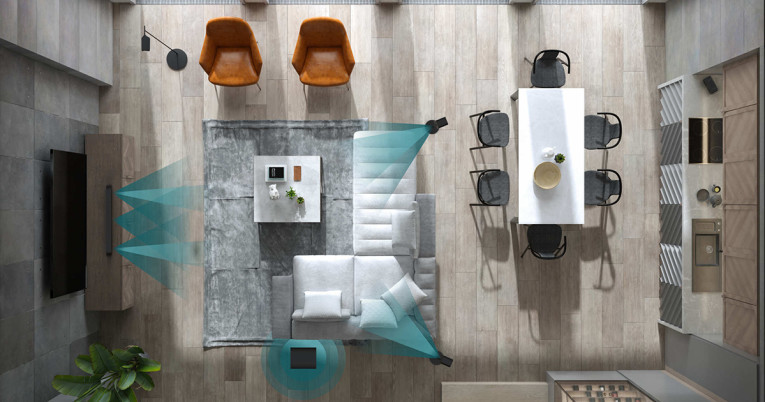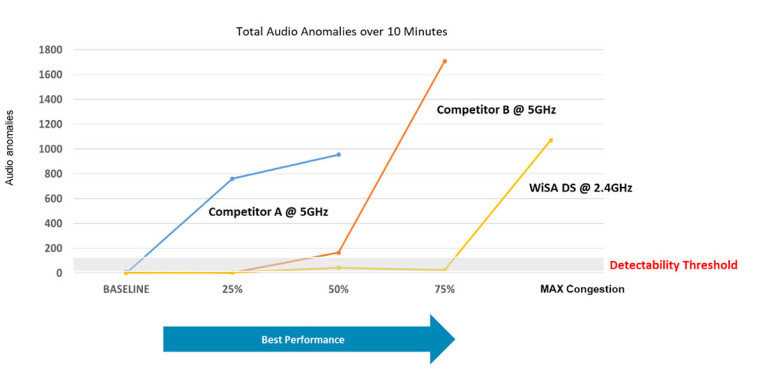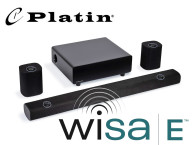
Featuring the Discovery transceiver, WiSA Discrete System Technology transmits up to five channels — four full-range audio channels and one high-fidelity subwoofer channel — of uncompressed 16-bit 48kHz sound over a 2.4GHz Wi-Fi network it creates. Ideal for soundbar systems, the Discovery transceiver delivers the quality, performance, and affordability that both consumers — and manufacturers' bottom line — demand.
Each of the competitive solutions featured in the lab test operates in the faster 5GHz portion of the wireless spectrum and in each case, the DS module outperformed the competition demonstrating its superior reliability, even in the most crowded of Wi-Fi environments. Testing was performed by Novus Labs, a well-respected testing laboratory with expertise in both audio and wireless. Novus Labs’ customers include audio brands such as Bose, Sonos, Roku and Sony.
“We asked Novus to test the reliability of multichannel audio modules in a real-world environment,” says Tony Parker, VP Technical Marketing for WiSA Technologies. “In the average home, more and more devices are streaming higher and higher resolution content, which means traffic over a Wi-Fi network is getting more and more congested. We wanted to know how this increase in congestion affects our new DS transceiver module as well as our competitors’ solutions.”
Novus Labs recorded the number of audio dropouts and glitches that occurred over a 10-minute period at different levels traffic congestion over the Wi-Fi network (baseline, 25%, 50%, 75%, and 100% congestion). Testing results are shown below.

Network congestion leads to a degradation of quality of service (QoS). In the case of audio streams, overly congested networks can result in audio dropouts and glitches that consumers can hear. Most audio solutions on the market manage this by detecting heavily-trafficked wireless channels and quickly switching to open channels, commonly referred to as “Detect and Avoid.”
As the number of wireless devices increases in homes, it has become extremely difficult to avoid congestion; products using "Detect and Avoid" can no longer guarantee a high level of QoS. WiSA’s DS technology was designed to maintain the highest quality audio even in the most congested wireless environments. Novus Labs’ test results demonstrate WiSA DS’s reliability is 1.5 to 3 times better than competitive products currently in the market.
“We were extremely pleased to see that our 2.4GHz DS module outperforms competitive solutions running in the 5GHz spectrum,” continued Tony Parker. “We encourage any brands building multichannel wireless audio products to evaluate WiSA’s DS solution and learn firsthand how this cost-effective module can provide more channels of audio with greater reliability than competitive products.”
WiSA Technologies is the provider of wireless sound technology for home entertainment systems, already working with leading CE brands and manufacturers such as Harman, LG, Hisense, TCL, Bang & Olufsen, and others. WiSA Technologies, Inc. (former Summit Wireless) is a founding member of WiSA (the Wireless Speaker and Audio Association) whose mission is to define wireless audio interoperability standards. The company is headquartered in Beaverton, OR with sales teams in Taiwan, China, Japan, Korea, and California.
www.wisatechnologies.com







